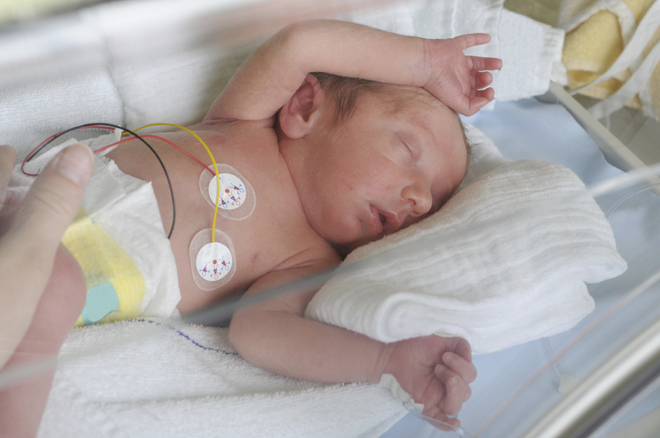
Newborn Preemie
A new study suggests that the brain’s immune system is the key to reversing dementia. Researchers said that findings showed for the first time that a diseased brain was able to fight the debilitating condition. In the study, when the researchers reduced the cells that prevent the immune system from reacting, they saw a significant drop in symptoms of dementia, the Express News reported. The researchers genetically engineered mice with human genes that were linked to dementia and made to learn the location of a platform in a rodent ‘swimming pool.' They blocked the action of regulatory T cells which consequently allowed immune cells to enter the brain. Inflammation and clumps of ‘plaque' on the brain were reduced and the mice performed better in cognitive tests. The therapy not only halted the condition but reversed it.
Preemies at risk of ADHD
Very premature babies are known to have an increased risk for attention-deficit hyperactivity disorder (ADHD), and a new study suggests this may be true also for babies born only slightly early. "There has been much research on very preterm birth and the increased risk for ADHD but less evidence when it comes to late preterm birth (weeks 34-36) and even less regarding babies born early term (weeks 37-38)," said experts at the University of Turku in Finland.
Healthy diet, healthy baby
A healthy diet before pregnancy may reduce the risk of certain heart abnormalities in babies at birth, says a study. Researchers quizzed around 19,000 women about the quantity and quality of their diet in the year leading up to their pregnancy. Half of them had given birth to healthy babies, and half had babies with major heart abnormalities at birth between 1997 and 2009. Previous studies suggest that multi-vitamin supplements might lower the risk while others suggest that better diet quality might make a difference to the rate of heart abnormalities at birth. In this study, the diet quality was assessed using two validated scoring systems: the Mediterranean Diet Score, and the Diet Quality Index for Pregnancy (DQI-P). Mothers in the top 25 per cent (quartile) of diet quality had a significantly lower risk of having a baby with certain heart defects than those in the bottom 25 percent. Better diet was associated with a 37 per cent lower risk of tetralogy of Fallot and a 23 per cent lower risk of atrial septal defects. Atrial septal defects refer to holes in the wall of the septum, which divides the upper chambers (atria) of the heart. Tetralogy of Fallot is a complex abnormality which can lead to dangerously low oxygen levels in the blood going to the rest of the body. The study was published in the BMJ journal Archives of Disease in Childhood.
In distress? Shed tears
If you are someone who breaks down into tears in difficult times then you might be heading on a good path as according to a recent study a good cry can make a person feel much better in his situation. While some researchers see it as a cry for support, comfort or help others believe that the main role of crying is to relieve emotions. Researchers from the University of Tilburg examined the immediate and the delayed effect of crying on mood within a controlled laboratory setting during their study. During the study two emotional films were shown to the participants after which the researchers noted that the mood of the non-criers was unchanged and unaffected immediately after seeing the films whereas the mood of the crierswas low and even dipped. Within 20 minutes, however, their mood had returned to the level reported before the screening and finally after 90 minutes, the criers reported even a better mood than was the case before. It is this dip and subsequent return of emotions to previous levels that might make criers feel as if they are in a much better mood after they have shed some tears. After the initial deterioration of mood following crying, it takes some time for the mood not only to recover but also to be lifted above the levels at which it had been before the emotional event. The study is published in the journal Motivation and Emotion. — Agencies


























